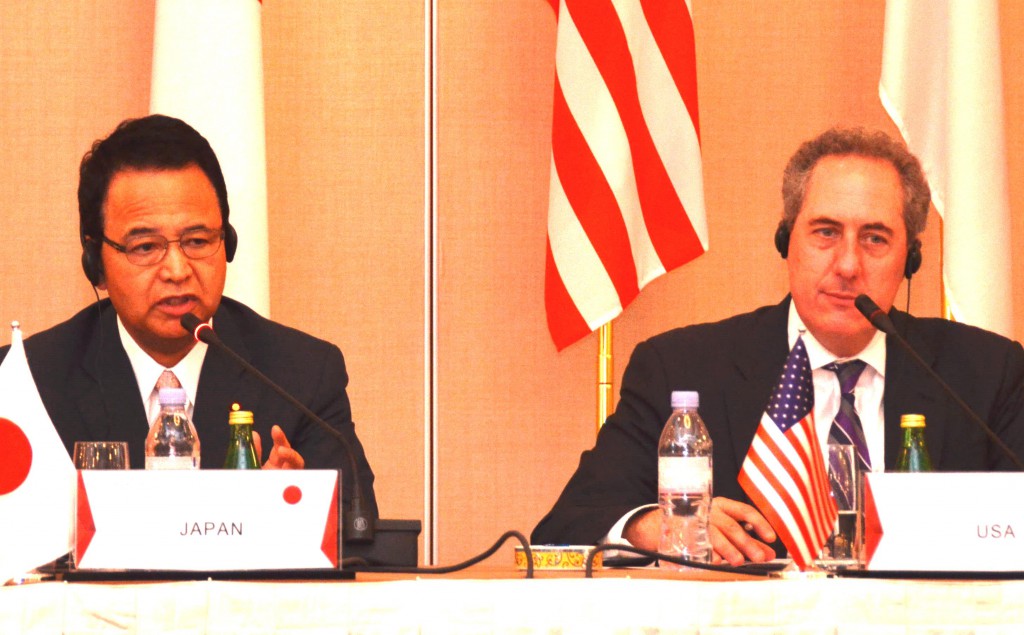
Minister Akira Amari (left) and U.S. Trade Representative Michael Froman holding a joint news conference of the TPP talks in Singapore
Hirobumi Senbongi – Singapore
The United States negotiators have opposed to introducing safeguard measures for Japan’s key agricultural products in the Trans-Pacific Partnership free-trade talks, it was learned Tuesday, May 20.As Japan and the U.S. resumed bilateral negotiations in Singapore along with the two-day ministerial meeting of the TPP member nations, the U.S. kept its hard-line stance over the measures which were seen as a key to reaching broad agreement, according to Japanese government sources.
The two nations, the biggest economies in the TPP, are said to have agreed on a “formula” with which they can seal a bilateral deal on the remaining issues, when they held marathon talks in April before the summit meeting between Prime Minister Shinzo Abe and U.S. President Barack Obama in Tokyo.
Concerning tariffs on Japan’s sensitive farm products, the two sides reportedly agreed in April to work together to find common ground on how to combine different elements such as the degree and period of tariff phaseouts and introduction of safeguard measures on imports of the products should they surge under the TPP.
However, Japanese government sources said the U.S. negotiators, although maintaining support for the formula in principle, started expressing opposition against safeguards, which, as one senior official of the ruling Liberal Democratic Party put it, the Japanese side regards as the most effective tool to protect the domestic agriculture industry.
Many worry that the U.S.’ shift in stance would have an adverse effect on the bilateral negotiations and the prospects of the TPP talks as a whole.
Behind the U.S. negotiators’ change in attitude lies strong opposition from U.S. agricultural lobbies. After Japanese media reported the two countries agreed on maintaining Japan’s tariffs on beef and pork, the U.S. agricultural industries are said to have pressured the U.S. government not to accept the formula. The moves apparently made it difficult for the two nations to hold negotiations on the issue after the Japan-U.S. summit meeting.
According to Japanese government sources, negotiation between Japan’s deputy chief negotiator Hiroshi Oe and Acting Deputy U.S. Trade Representative Wendy Cutler in Singapore had to be finished earlier than scheduled, as the U.S. remained cautious about proceeding with the talks based on the formula.
The U.S. negotiators also said they want to avoid meeting in places where they can be conspicuous, the sources said.
(May 21, 2014)

